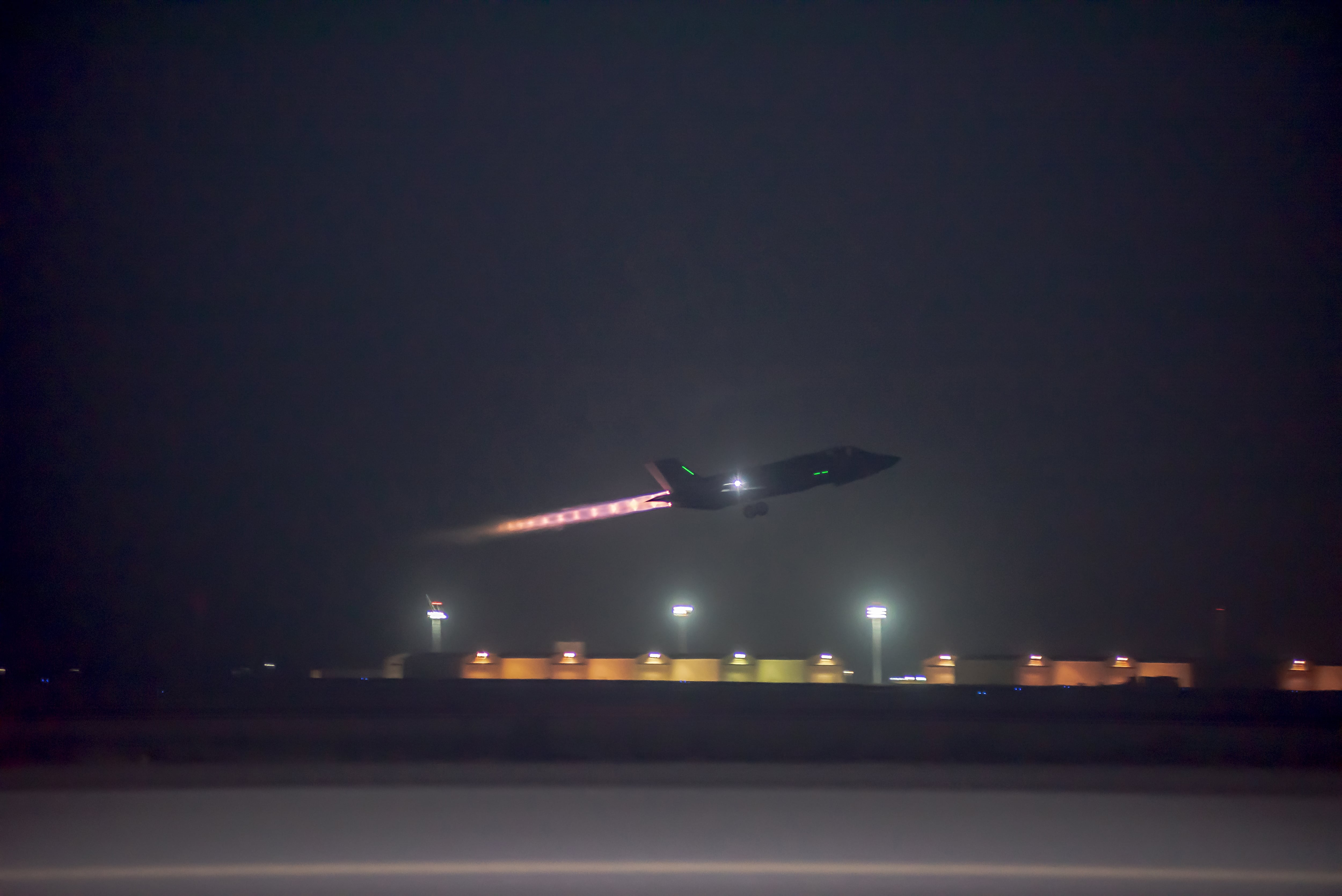WASHINGTON ― Since removing Turkey from the multinational F-35 program over its purchase of a Russian air defense system, the U.S. has found alternate suppliers for all but a dozen components Turkey is producing for the Lockheed Martin-made fighter jet.
As U.S. President Donald Trump met with Turkish President Recep Tayyip Erdogan at the White House on Wednesday, the Pentagon’s F-35 program executive testified in Congress that he expects Turkey will be phased out on schedule, by March 2020. Lockheed and Pratt & Whitney, he said, have “spectacular progress” finding alternate suppliers.
“We began just over a year ago, very quietly but deliberately, taking actions to find alternate sources for all of those parts,” said the program executive, Lt. Gen. Eric Fick. “We are not quite there yet, so we have, on the airframe side, 11 components we have to mitigate to be at full-rate production ... and on the engines, there’s one: integrated bladed rotors, IBR’s.”
RELATED

Though the U.S. has narrowed the number of parts down from 1,000 to 12, it’s still set to receive previously-ordered parts from Turkey after the March 2020 deadline. As the Pentagon worked to stand up alternative sources, it did not dual-produce the parts, which saved money but added a wrinkle to phasing out Turkey.
Undersecretary of Defense for Acquisition and Sustainment Ellen Lord affirmed to Rep. Donald Norcross, D-N.J., that as of Wednesday, Turkey’s exit from the program was not expected to cause any F-35 production delays, calling the Turkish suppliers, “very very good.”
In response to Washington expelling the U.S. from the F-35 program, Erdogan attended an annual Russian air show this summer in Moscow and expressed interest in buying the latest Russian Su-35 fighter jets.
Trump has not yet decided whether to impose congressional sanctions on Turkey for the S-400 purchase.
At a joint news conference with Trump at the White House on Wednesday, Erdogan said the two discussed the dispute over the S-400 and F-35, and the Turkish president held open the possibility of purchasing a Raytheon-made Patriot missile system, which the U.S. previously offered as an alternative to the S-400.
Erdogan called a previous U.S. denial of the Patriot systems an “injustice orchestrated against Turkey,” adding: “We have clearly stated to President Trump that under suitable circumstances we can acquire Patriot missiles."
Joe Gould was the senior Pentagon reporter for Defense News, covering the intersection of national security policy, politics and the defense industry. He had previously served as Congress reporter.







